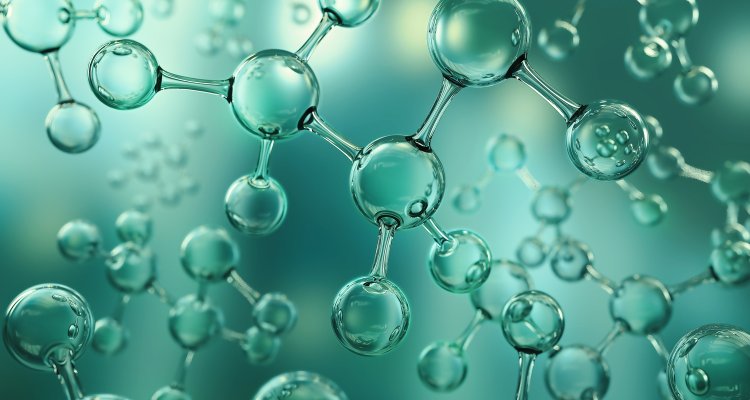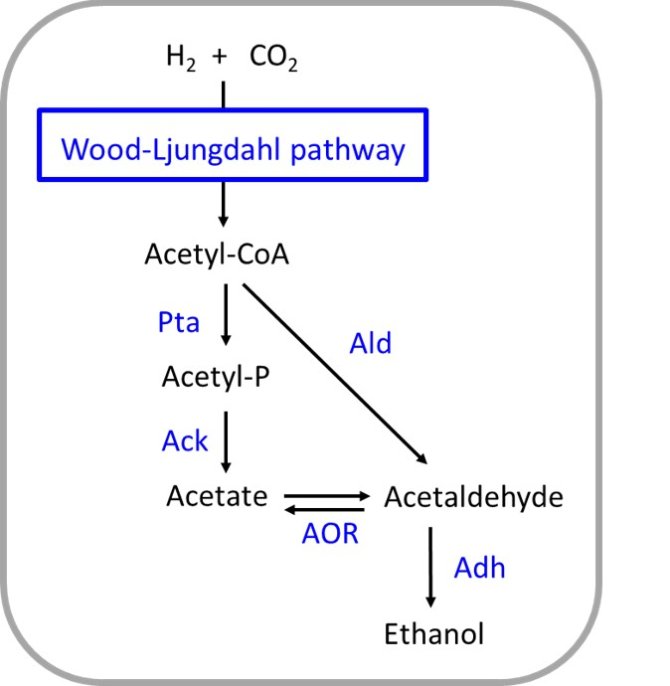
Project
Engineering of acetogens for fuel production using H2 and CO2
This project aims to engineer the metabolism of acetogenic bacteria for the production of biofuels (ethanol) from H2 and CO2.
Background
The transition towards a bio-based economy demands the development of fermentation-based processes, which are economically competitive with the currently employed unsustainable production processes. Unfortunately, only very few natural organisms are suitable for their direct application in an industrial process. Therefore, efficient metabolic engineering via targeted genome engineering is required and the development and use of genome engineering tools generally applicable to many model and non-model organisms is of great importance. Anaerobic acetogenic microorganisms use the Wood-Ljungdahl pathway to reduce CO2 with H2 to acetate, ethanol and other products.

Aim
Clostridium autoethanogenum is our model acetogen and converts H2 and CO2 into mainly acetate. We have established a conjugation protocol and a CRISPR-Cas-based engineering tool for this organism. Now, in the final stage of the project we aim to knockout a few genes involved in acetyl-CoA conversion and force the organism to make more ethanol instead of acetate. Secondly, we want to heterologously express, purify and characterize several alcohol dehydrogenases from the same organism and identify their cofactor specificity.
Techniques
Multiple techniques are used to achieve our targets including CRISPR-Cas genome editing, anaerobic culturing, HPLC, GC, FPLC and regular plasmid design and cloning.